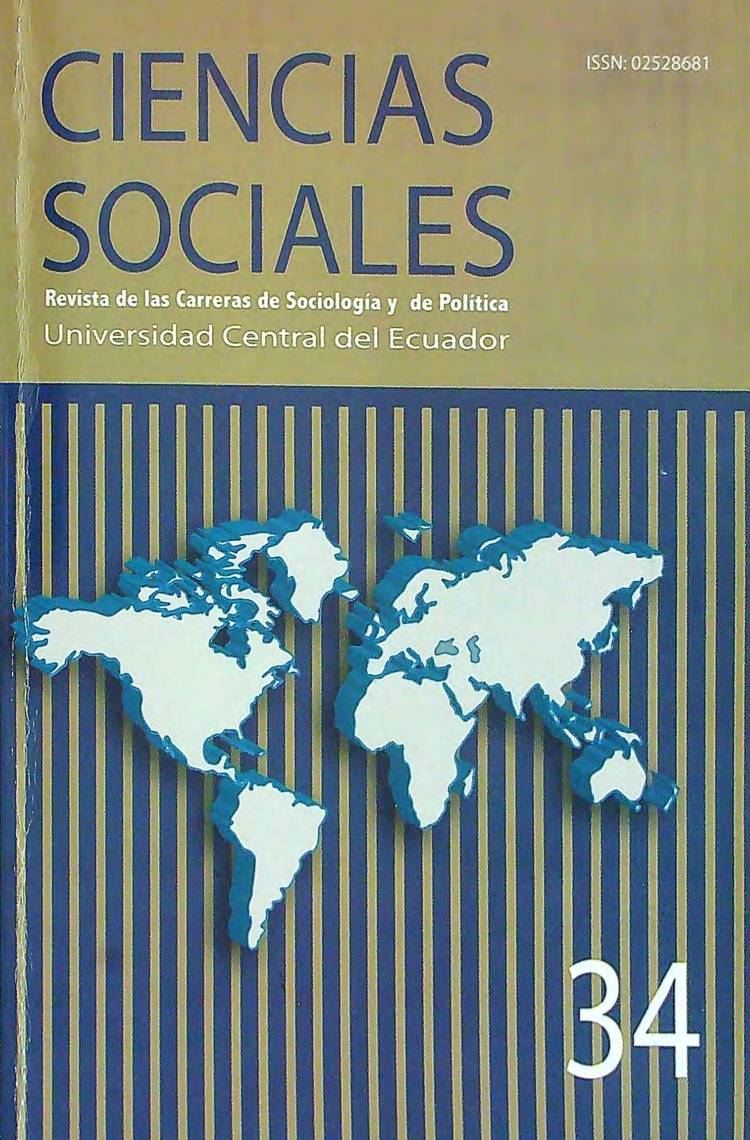Construcción de las relaciones sur-sur en América Latina y El Caribe
Integración estatal y zapatismo
Keywords:
South Relations, Other world is possible, Latin AmericaAbstract
In Latin America and in the Caribbean is taking place a political recenfiguration process, which initiated surprisingly in 1994 with the Zapatista irruption in Mexico, and around the world. On the other hand, it is the region that an international leve! experiments the reconfiguration of the south-south relationship in a more intense way.
The ALBA- TCP project and the regional activism of the Venezuelan govemment have had the capability of enlarge the political debate about integration and their relationship with the economic and social development, allowing, this way, more progressive and sovereign visions. In particular, the ALBA-TCP has favored to the social agenda and the treatment of the before ignored asymmetries, and to demonstrate the potential of the "south-scuth" cooperation. This is the case of the relationships between China and the south countries, especially Latin America.
There is a convergence between the Chinese and Russian capitalist expansionist processes, with the sovereign intentions and attempts of Latin American and Caribbean governments. lndeed, today there are in this region multiple mechanisms of political, economic, social, cultural and military cooperation and integration that maybe were not imaginable during the XX century, when cold war logic ruled.
Since the intergalactic encounter against Neoliberalism organized by the Zapatlstas in "Selva Lacandona", a trend to unify light spaces in a national and international level is being conformed. These processes divert in the construction of a national indigenous movement and in the World Social Forum slogan "Another world is possible".
Downloads
References
Boron, Atilio, 2009. Socialismo siglo XXI. ¿Hay vida después del neoliberalismo!, Monte Avila, Venezuela.
Gasparello, Giovanna y Quintana Guerrero, Jaime (coord.), 2009. Otras Geografías. Experiencias de autonomías en México, UAM-1, México.
Katz, Claudio, 2008. El rediseño de América Latina. ALCA, MERCOSUR y ALBA, Editorial Ciencias Sociales, Cuba.
López Castellanos, Nayar, 201 1, Perspectivas del socialismo latinoamericano en el siglo XXI, Ocean Sur.
López Castellanos, Nayar y Oliver, Lucio (coord.), 2009. América Latina y el Caribe, una región en conflicto. Intervencionismo externo, crisis de las instituciones políticas y nuevos movimientos sociales, Plaza y Valdés-UNAM, México.
López y Rivas, Gilberto, 2012. Las autonomías de los Pueblos Indígenas en México, Libros digitales, Editorial Armonía: www.armonialibros.com
Monedero, Juan Carlos, 2008. Disfraces del Leviatán. El papel del Estado en la globalización neoliberal, Ediciones del Río OritucoCentro Internacional Miranda-Ministerio del Poder Popular para la Educación Superior, Venezuela.
Zibechi, Raúl, 2008. Autonomías y emancipaciones: América Latina en movimiento, Bajo Tierra Ediciones-Sísifo Editores, México.
Published
How to Cite
Issue
Section
License

This work is licensed under a Creative Commons Attribution-NonCommercial 4.0 International License.
Política de acceso abierto
La revista Ciencias Sociales adhiere al modelo Acceso Abierto en el que los contenidos de las publicaciones científicas se encuentran disponibles a texto completo libre y gratuito en Internet, sin embargos temporales, y cuyos costos de producción editorial no son transferidos a los/las autores/as.
En ese sentido, no existe costo alguno para los/as autores/as en el envío o durante el proceso editorial, defendiendo el derecho a la información con equidad e iguales oportunidades de acceso.
Licencia y derechos de autor/a
Los autores conservan todos los derechos de publicación del artículo y conceden a la Revista Ciencias Sociales una licencia no exclusiva, intrasferible y sin regalías por duración ilimitada para su reproducción, distribución y comunicación pública a nivel mundial bajo una Licencia Creative Commons Atribución 4.0 Internacional (CC BY NC 4.0)


